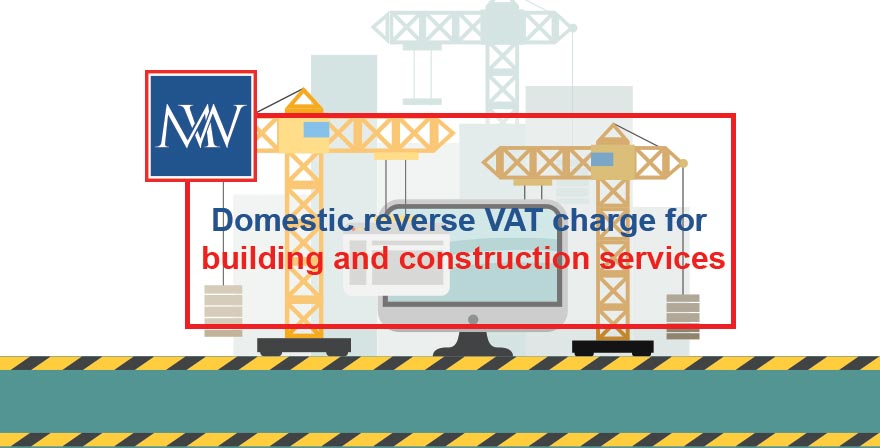
Domestic reverse VAT charge for building and construction services
The domestic reverse VAT charge for building and construction services was due to come into effect from 1 October 2019. However, in early September it was announced that the start date had been put back one year. As a result, the charge will now apply from 1 October 2020.
Who is affected?
The charge will affect individuals and businesses who are registered for VAT in the UK and who supply or receive specified services that are reported under the Construction Industry Scheme (CIS).
Nature of a reverse charge
The reverse charge means that the customer receiving the specified supply has to pay the VAT rather than the supplier. In turn, the customer can recover the VAT under the normal VAT recovery rules.
Supplies within the scope of the charge
The will apply to supplies of building and construction services which are supplied at the standard or reduced rates that also need to be reported under the CIS. These are called specified supplies.
However, where materials are included within a service, the reverse charge applies to the whole amount. By contrast, where deductions are made from payments to subcontractors under the CIS, no deductions are made from any part of the payment that relates to the material.
Move to monthly returns
The introduction of the reverse charge will mean that some businesses may become repayment traders claiming the VAT back from HMRC rather than paying it over to HMRC. To aid cashflow and reduce the delay in claiming the VAT back, repayment traders can move to monthly returns.
Planning ahead
The delayed start date has given businesses an extra year to prepare for the charge. In order to be ready for its introduction, businesses within the CIS should:
- check whether the reverse charge will affect their sales, their purchases or both
- update their accounting systems and software to deal with the reverse charge from 1 October 2020
- consider whether the change will impact on cashflow
- ensure that staff who are responsible for VAT accounting are familiar with the reverse charge and how it will operate
Contractors should review their contracts with subcontractors to determine whether the reverse charge will apply to services received under the contract. Where it does, they will need to notify their suppliers.
Subcontractors will need to contact their customers to obtain confirmation from them as to whether the reverse charge will apply, and also whether the customer is an end-user or intermediary supplier.
Impact of change of start date
HMRC recognise that the start date was changed at short notice and that businesses may have changed their invoices to meet the needs of the reverse charge and cannot easily change them back. Where errors arise as a result, HMRC will take the change of date into account.
For more detail about Domestic reverse VAT charge for building and construction services, Book a free consultation
Need Accountancy Support?
For information on bespoke training, or if you have any other questions for Makesworth Accountant, please fill in your details below
















 151
151